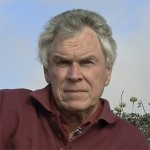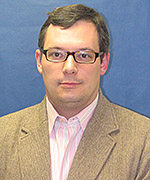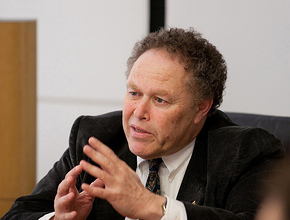From posting these blogs to writing them!
IPSS in Cambodia
It seems like ages that I was working at the GSIPM front desk, driving my boss and other staff “insane” with my preparation-related anxieties and emotional outbursts for my IPSS applications. I am sure they were as much relieved as I was when the Cambodia Office of The Asia Foundation approved my application.
Today, 93F/62% humidity (and climbing!), Cambodia feels already like home and it’s only been 7 weeks. Why does it feel like home? When I came back to Phnom Penh from a weekend visit to Siem Reap a few weeks ago, I was sitting at the back of a motorbike taxi driving me home from the bus station. I was directing him, and I got this strange feeling of coming home. I knew my way around, recognized buildings and streets. Anybody slightly familiar with Phnom Penh knows that the streets in this city are a nightmare. House numbers do not make any sense. The only way to communicate where you are is you or a building in relation to a street intersecting. You get the hang of it pretty quickly: “Hey, I live at Street 278, close to street 143, third building on the left, next to a school. Our house has a green iron gate. Walk east towards the Olympic Stadium if you get lost and call me.” Or, “my work is on Street 242, between Monivong Blvd and Street 63.” I communicate with motorbike taxis and tuk tuk drivers the same way, “Just head towards the Royal Palace, I will show you.” Fascinating!


It was scary to hop on a motorbike at first but now I have a bike. It is a lot of fun to bike through Phnom Penh especially on the weekends when traffic is slow. Most of the time, however, it feels like committing suicide when I merge into the traffic. There are no apparent rules, except for one: Be reckless and inch your way forward at all cost! This is particularly evident at traffic lights when the time is ticking down. At 10 seconds, you can feel the vibe of hundreds of motorbike drivers around you, getting itchy, accelerating – vroom vroom – and rolling forward inch by inch, hitting your tire, and releasing a bunch of exhaust fumes into your face. Not that it will do anything for them – and it certainly does not do anything for me except speeding up the decay of my inner organs – but it is hilarious to watch. Then the traffic light hits 3 seconds. Oh boy! The patience has come to a sudden death, an invisible conductor begins to direct the honking concert and the chaos unfolds. The bus coming straight at you, no problem. People here can manoeuver very well. There is also a panacea for this: drafting behind a big SUV or within a group of 10 motorbikes which are forcing their way through traffic and I am good to go. Or, change lanes to the opposite side and wait on the sidewalk (the 3 or 4 in this city that actually earn the name sidewalk) and take any opportunity to make a left turn even though
the traffic light for the left turn lane is still red. I am afraid I have to re-learn how to drive when I come back to the US.

MIISmafia reunion in Phnom Penh from left: MPA alumna Alex Murga, IPSS Candidate Alexandra Amling, IPS alumni Meg Fukuzawa and Robin Narcisso.
I was very fortunate when I got here because the arm of the MIIS Mafia reaches very far. During my preparations, I bombarded two MIIS alumni and friends working and living in Phnom Penh with hundreds of questions. We are currently four MIIS alumni because the fourth rejoined in March. They can take credit for having made my stay here so comfortable and relaxed. The first day, we went out to a local market and despite signs of a culture shock for me, my friend’s nonchalant demeanor made walking the streets of Phnom Penh almost normal. Thanks to them, I have come to love Phnom Penh very quickly.
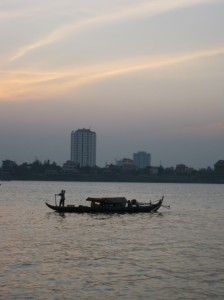

Cambodia is host to a plethora of NGOs, both local and international. Any non-Khmer person you meet on the streets introduces him/herself as “I am working for XYZ.” There is an obvious “invasion” of French people in Cambodia, and then, of course, the Aussies who openly call Southeast Asia their backyard. Honestly, however, Australia is the backbone of many projects here and the biggest donor. If it wasn’t for their support, many things in Cambodia would still not work very well. Not to advocate donor dependency or dismiss foreign aid as something inherently bad, the work that’s being done in Cambodia is incredible. The country is changing rapidly, economically and socially. Just the structure is still limping and has not caught up yet.
My work for TAF (yes, acronyms and abbreviations are not just a MIIS specialty!) is very challenging and inspiring. The first-hand experience of the “real thing” is amazing. The NGO field is so diverse and development has many facets. Networking is fantastic and I have met so many interesting people with very diverse backgrounds. It is an eye opener for the different possibilities and niches out there.
I will be working on a project on Intimate Partner Violence which is quite severe in the Asia-Pacific region with current studies indicating very high prevalence rates. Going beyond the nominative aspects of focusing on attitudes towards acceptance of violence against women, I will support a project that will look at the macro-level. I already participated in a workshop from the Ministry of Women’s Affairs,
Going beyond the nominative aspects of focusing on attitudes towards acceptance of violence against women, I will support a project that will look at the macro-level. I already participated in a workshop from the Ministry of Women’s Affairs,
experiencing the dynamics between donors and recipients. I am very excited to work on a project that is contributing to tackling such a serious problem.
Coming from a strictly academic and research heavy background, I have not been oblivious to the technical hurdles of policy design, implementation and evaluation, but working with people in this field makes the rather abstract discussions in a Policy Analysis class a lot more tangible. That being said, I have finally made my way to
That being said, I have finally made my way to
Asia after all these years and, as my wonderful Australian coworker put it the other day, I am “finally becoming important.”
I am growing on many levels with IPSS. It is a good start for navigating the abyss of career development, applying knowledge and learning to know who you are.

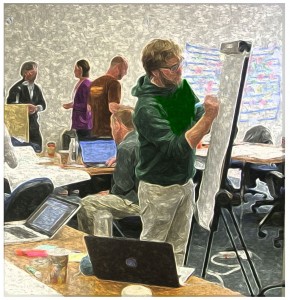





 Going beyond the nominative aspects of focusing on attitudes towards acceptance of violence against women, I will support a project that will look at the macro-level. I already participated in a workshop from the Ministry of Women’s Affairs,
Going beyond the nominative aspects of focusing on attitudes towards acceptance of violence against women, I will support a project that will look at the macro-level. I already participated in a workshop from the Ministry of Women’s Affairs, That being said, I have finally made my way to
That being said, I have finally made my way to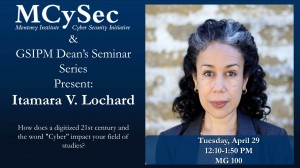


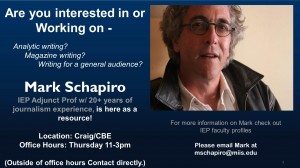
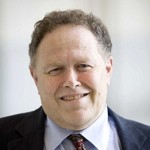 Dr. Avner Cohen
Dr. Avner Cohen